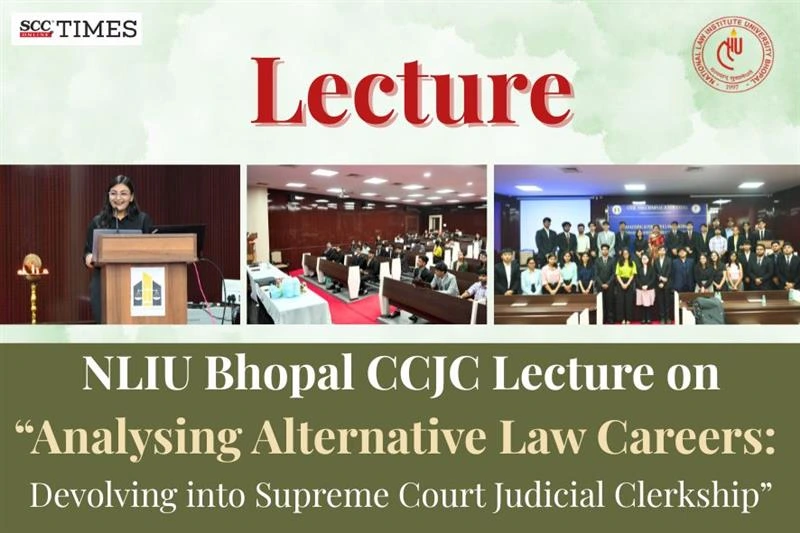The Civil and Criminal Justice Cell (CCJC) of the National Law Institute University, Bhopal, organised a lecture on “Analysing Alternative Law Careers: Devolving into Supreme Court Judicial Clerkship.” The session featured Ms. Kavya Arora, Judicial Clerk in the office of Hon’ble Justice R. Mahadevan, Supreme Court of India. She shared her experiences and insights into one of the judiciary’s most coveted career paths of judicial clerkship.
Ms. Arora described the clerkship as both intellectually rigorous and professionally transformative emphasising that adaptability, analytical and research skills along with a strong command of legal reasoning are indispensable for excelling in the role.
She provided students with an overview of the judicial clerkship examination, with tips from her own experience. She outlined the structure of the examination, which focuses on constitutional, procedural, civil, and criminal law. Her suggested preparation plans included categorising topics by difficulty and consistent engagement with recent judgements. She also suggested critical evaluation of previous year papers.
To illustrate effective legal writing, Ms. Arora analysed a sample brief, underscoring the importance of clarity, structure, and persuasive reasoning. She also explained how research memoranda for judges must present concise facts, sharply framed issues, and focused legal analysis supported by relevant precedents.
Highlighting the significance of judicial internships, it was added that they serve as a crucial stepping stone for clerkship aspirants. She encouraged students to seek placements in judges’ chambers over registry postings to gain meaningful exposure to judicial work.
In concluding her address, Ms. Arora painted a vivid picture of the daily responsibilities of a judicial clerk. These include attending hearings to preparing detailed notes, conducting legal research, and contributing to the drafting of judgments. These tasks, she remarked, make the role an unparalleled training ground for young lawyers, offering a vantage point into the inner workings of the Supreme Court.
The session left students with not just a roadmap for preparation, but also a deeper appreciation of judicial clerkship as an alternative career path. They learnt that this profession combines intellectual rigour with professional growth at the highest level of the judiciary.


